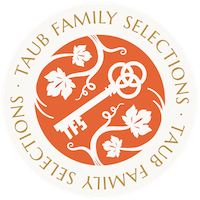In 1969, after a considerable search, the Taylor family found a promising 178-hectare site by the Wakefield River in the Clare Valley. They were certain the soil – Terra Rossa (red loam over limestone) – would prove conducive to crafting wines of the highest quality. The contrast of warm days and cool nights in the Clare Valley would be equally beneficial – helping the grapes ripen in the day and allowing the vines to rest at night. The St. Andrews range of wines is named after a historic property in the Clare Valley, first established in 1892 by Scottish immigrants. For years, St. Andrews was one of the leading producers in the area but ceased operating in the 1930s. Recognizing the potential of this land, which lay adjacent Wakefield’s first vineyards, founder Bill Taylor purchased the property in 1995 and replanted, releasing the first vintage in 1999. These critically acclaimed wines are only made in exceptional vintages and from top estate parcels.
- About Us
- Producers
-
Wines
add
Countries
-
Spirits
add
CountriesAwards
- Where to Buy
- PBI Journal
- Contact Us














